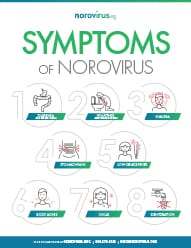In recent months, Texas has faced a growing measles outbreak, prompting public health officials to call for stringent vaccination measures. However, the state is on the brink of easing the process for obtaining vaccine exemptions for children, a move that could significantly alter the landscape of public health in the region.
Measles, a highly contagious disease, has seen a resurgence in various parts of the United States, and Texas is no exception. The state has experienced an increase in measles cases, primarily attributed to lower vaccination rates in certain communities. With the outbreak serving as a critical concern for public health authorities, the proposed legislative changes surrounding vaccine exemptions are prompting discussions on vaccination policy and public safety.
Currently, Texas has established guidelines that allow parents to apply for vaccine exemptions based on personal beliefs, medical reasons, or religious objections. However, the process can often be cumbersome and requires extensive documentation and justification. In light of the ongoing measles outbreak, state officials have suggested modifying these requirements to make it easier for parents to exempt their children from vaccinations.
Critics of the proposed changes argue that simplifying the exemption process could exacerbate the spread of measles and other preventable diseases. They assert that vaccinations play a crucial role in maintaining herd immunity, which protects vulnerable populations who cannot be vaccinated due to medical conditions. By potentially allowing more children to be exempt from vaccinations, opponents fear this could lead to a decline in community immunity, increasing the likelihood of outbreaks.
Supporters of easing vaccine exemptions argue that parents should have the autonomy to make choices regarding their children’s health care. They contend that the existing exemption process is overly burdensome and may discourage families from pursuing vaccinations altogether. The rationale is that by making exemptions more accessible, families who may have legitimate concerns about vaccine safety or efficacy will be more likely to engage with the healthcare system.
The political landscape surrounding vaccine exemptions is complex, with various stakeholders weighing in on the issue. Lawmakers are faced with the challenge of balancing public health concerns with individual rights. As discussions advance, elected officials must consider the implications of their decisions on both community health and parental rights.
In Texas, where a significant portion of the population leans towards conservative values, vaccine skepticism has gained traction in recent years. A vocal subset of parents has expressed concerns about vaccines, citing fears over potential side effects and advocating for more personalized healthcare choices. This cultural backdrop has influenced legislative approaches to vaccine policy, creating a dynamic where public health recommendations can become entangled with personal beliefs.
Public health officials emphasize the importance of vaccinations as a cornerstone of preventive healthcare. Vaccination not only protects individuals but also contributes to the overall health of communities by reducing the prevalence of diseases like measles. This is particularly vital given measles’ contagious nature, with an infected person capable of spreading the virus to up to 90% of unvaccinated individuals in close proximity.
As Texas considers relaxing the exemption restrictions, data from health departments indicate a need for increased public confidence in vaccines. Educational initiatives that address concerns and provide transparent information about vaccine safety and efficacy are crucial. It is evident that the solution to vaccine hesitancy is multifaceted, requiring efforts from public health advocates, healthcare providers, and policymakers.
Moving forward, the decisions made by Texas lawmakers will likely set a precedent for other states navigating similar challenges. The ongoing dialogue highlights the complexities of public health policy in a diverse society where personal beliefs and collective health interests often collide. The capacity to find a balanced approach that respects individual rights while prioritizing community health remains a pressing concern for all involved.
With the measles outbreak as a backdrop, the stakes are high. Should Texas proceed to make it easier for parents to opt-out of vaccinations, the implications could be far-reaching, particularly in light of the ongoing outbreaks. Public health advocacy will play a key role in shaping the narrative, ensuring that families have access to quality information while highlighting the significance of maintaining high vaccination rates.
In conclusion, the situation in Texas underscores the ongoing tension between personal choice and public health mandates. As the state contemplates changes to vaccine exemption policies, broader conversations about health education, community engagement, and the value of vaccinations in preventing outbreaks must continue. The outcomes of these decisions will resonate beyond Texas, influencing the national conversation on vaccine policy and public health.



